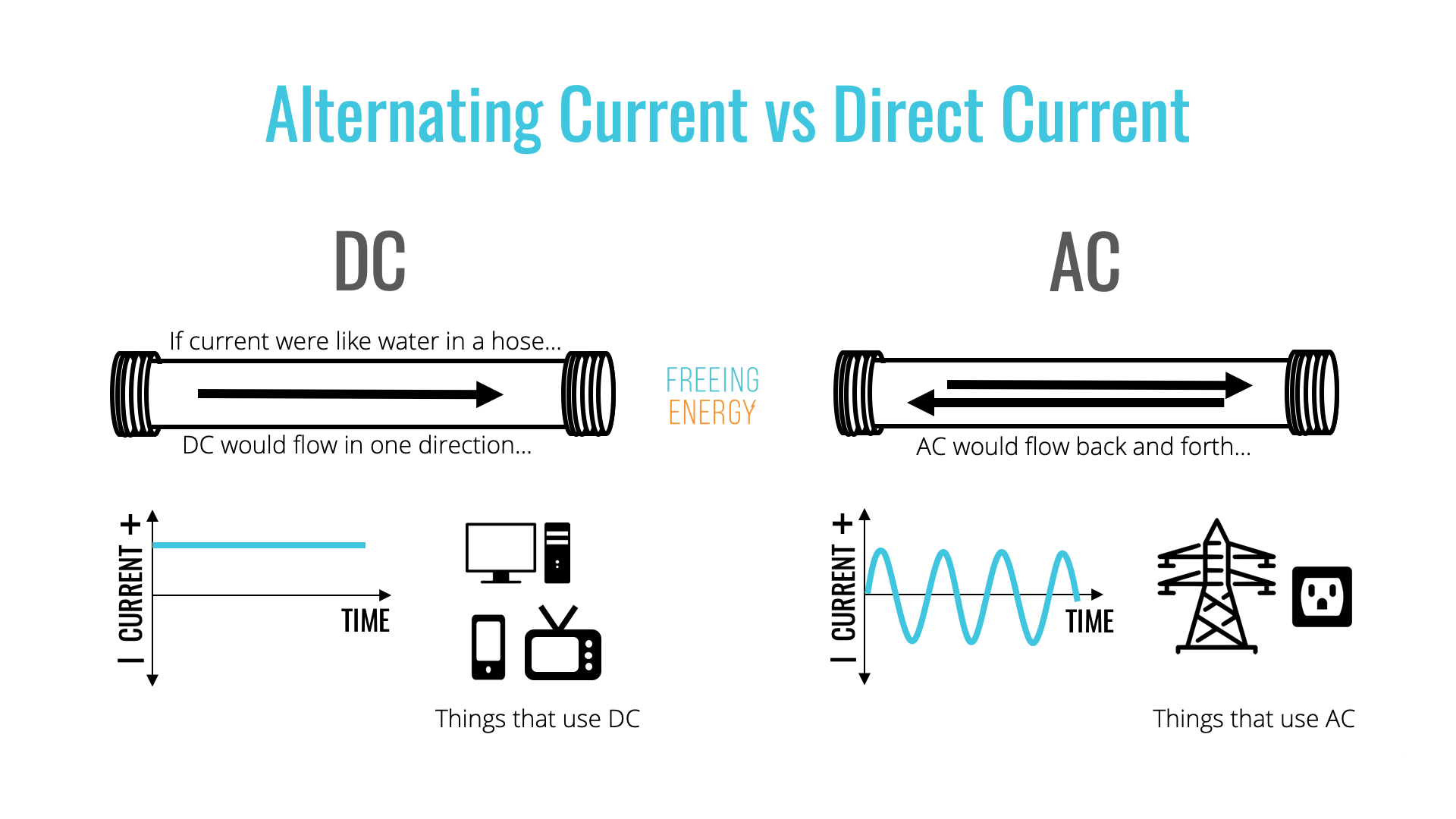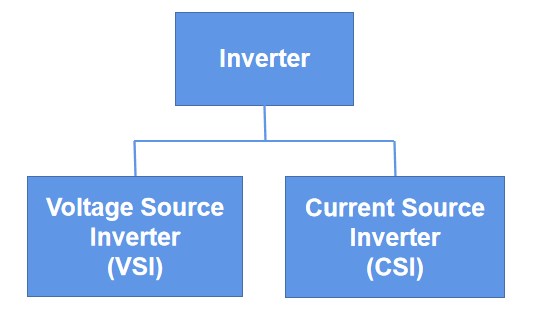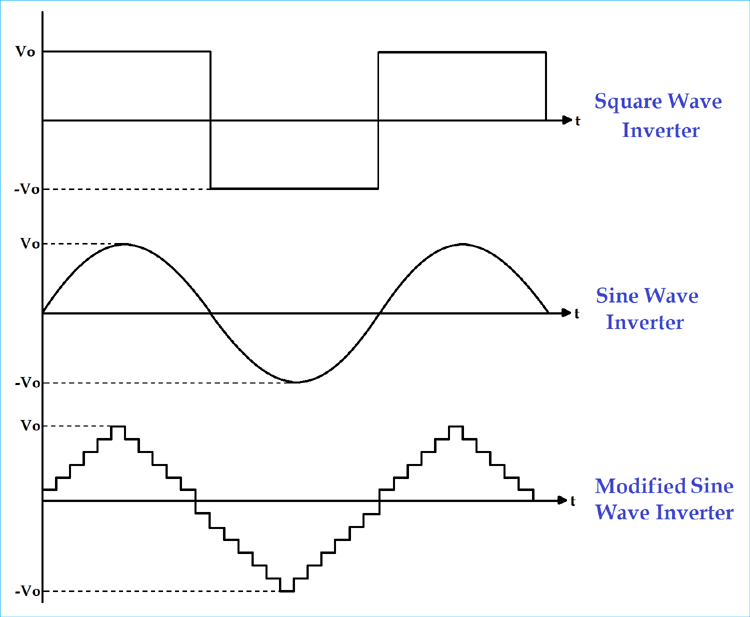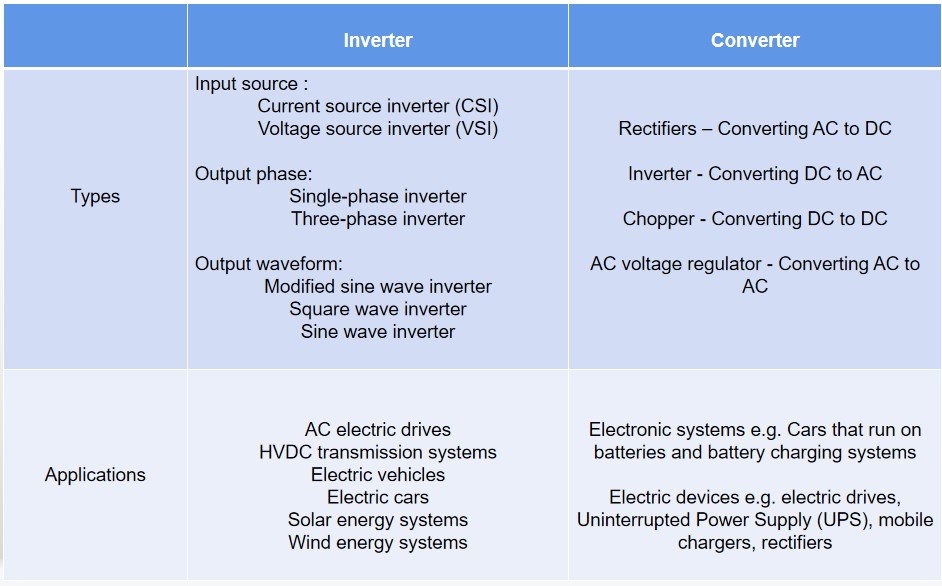Inverter vs. Converter: Which Do You Need For Your Camper Life?
Do you own a recreational vehicle and are curious to know if a converter or inverter can generate adequate energy to power your appliances?
Well, like most RV owners, you may be torn between buying a converter vs. an inverter. Since you're so concerned about owning a healthy and efficient power source, this blog post will examine in detail all you should know about a power inverter vs. converter.
What is a Converter?
A converter is any electronic device capable of changing electric power from one form to another. Since there are two major types of electric power, namely alternating current (AC) and direct current (DC), a converter converts from one form to another. This means you can change AC to DC or DC to AC with a converter.

The major purpose of investing in a converter is to get the type of electric power you desire for a particular load. During energy conversion, there is usually a point or stage where input is transformed into output, and the converter is the medium that takes care of that transforming stage.
However, it is worth noting that your converter can perform several functions besides producing outputs that are different from the original input. Other functions of a converter include:
- Changing the magnitude of an input voltage
- Polarity inversion
- Producing several output voltages by using only one input voltage
- Producing diverse polarity voltages
What is an Inverter?
An inverter is an electronic device that can convert direct current to alternating power. Most properties in the United States use inverters to store energy they can use as a backup power source to light up homes, offices, and factories. It's safe to say that inverters are a type of electronic converter.

The mechanism behind how inverters work is that they receive direct current from batteries and convert it into alternating current supplied to the connected appliances. While the DC power received is the input, the AC power supplied to power the appliances is the output. The output produced by an inverter can have a pure sine wave, a modified sine wave, or a square wave.
If you're looking to experience the wonders of inverters firsthand, look no further! Check out the Renogy 2000W 12V Pure Sine Wave Inverter with Power-Saving Mode. It's a game-changer that seamlessly converts DC to clean and reliable AC power, perfect for a variety of applications. Discover more about this incredible device and bring reliable power conversion into your life.
DC Vs. AC power
AC and DC are both types of electricity. AC means Alternating Current, while DC means Direct Current. AC power is produced in power plants and distributed to an extended range via power lines. Homes and businesses need AC power to power their appliances.
Since AC power can be distributed to far regions, it is usually used for countrywide networks, and different homes and businesses can depend on it as their electricity source. For example, you connect to AC power whenever you plug an electronic device, such as a TV or refrigerator, into your wall socket.
However, AC power comes with a setback: you cannot store it. The power plants that produce it must ensure an all-day and night production all year round to meet consumers' demand nationwide.

Source: Freeingenergy.com
On the other hand, DC power always flows from negative to positive, so you can store it in batteries for present or later use. This makes DC an excellent choice for electricity consumers who want to discontinue being connected to the national grid. It's also perfect for boondocking and RV campers.
The interesting part about these types of current is that they can be converted from one form to another. This is where the inverter vs. converter comparison comes in.
Commonly, a converter is adopted in converting AC to DC, while an inverter converts DC to AC. This means that if you have an AC power source and need to power your DC appliances, you need a converter to transform your AC power source to DC. In contrast, you would need a converter to convert your DC to AC if you need to power your AC appliances but have DC power source, such as from your DC camper battery.
But remember that you can also convert your DC to AC with a converter.
What Are The Types Of Inverters?
There are different types of inverters based on different classifications. Viewing inverters based on their input source, we have the Voltage Source Inverter (VSI) and the Current Source Inverter (CSI).

You can also group inverters according to their output phases; in that regard, we have single-phase and three-phase inverters. Lastly, when you look at inverters based on their output waveform, you can group them as square waves, sine waves, and modified sine wave inverters.

Source: Circuitdigest.com
What Are The Types Of Converters?
Depending on their input and output voltages, you can group converters into different categories. Below are the different converter categories:
AC to DC converter: This converter is best known as a rectifier.
DC to AC converter: Since they perform the function of an inverter, this converter is also regarded as an inverter
AC-to-AC converter: the purpose of an AC-to-AC converter is to convert AC from one voltage to another. Hence, it is also known as an AC voltage regulator.
DC to DC converter: This converter is also known as a chopper.
Applications of Inverters and Converters
You can use inverters and converters to power your household appliances. Your inverter can power AC electric drives, HVDC transmission systems, Electric vehicles, and electric cars. Other areas of application of inverters include solar energy systems and wind energy systems.
On the other hand, a converter can power electronic systems and devices. These include battery-charged cars, UPS, rectifiers, and charge.
What's the Difference between Converter and Inverter?
While inverter and converter can both transform voltage, they actually perform an opposite action to each other. A converter can turn AC power into DC. It can change the voltage level from one level to another, such as from 110v to 12v.
On the other hand, an inverter transforms DC power into AC power. It also converts voltage levels, such as from 12v to 110v.
For instance, people who spend a lot of time in campers require an inverter to run their appliances from their camper battery bank. They, however, need a converter to charge the camper's battery bank.

Do I Need a Converter or Inverter in my Camper?
The straight answer to this question is that it depends. Whether you need a converter or an inverter depends on your source of power supply and your appliances.
For example, you can avoid not having a converter or inverter in your camper if you use only DC appliances and have a solar system installed. You can easily charge your batteries from a solar system and connect your DC appliances to the batteries.
However, you will need a converter or inverter when you require AC power to charge your batteries and power your appliances. Keep in mind that you cannot power AC appliances using DC power. So if you plan to live off the grid and want to use a TV or coffee maker, you want to change the DC power that your batteries supply to AC, which is where you need an inverter.
Also remember you can't charge your 12v DC battery with AC power directly. Hence, you need a converter in your camper to convert the AC power to DC.
Related articles:
What Is A Solar Inverter Charger?
How A Solar Inverter System Works
What Are The Different Types Of Solar Inverters?










